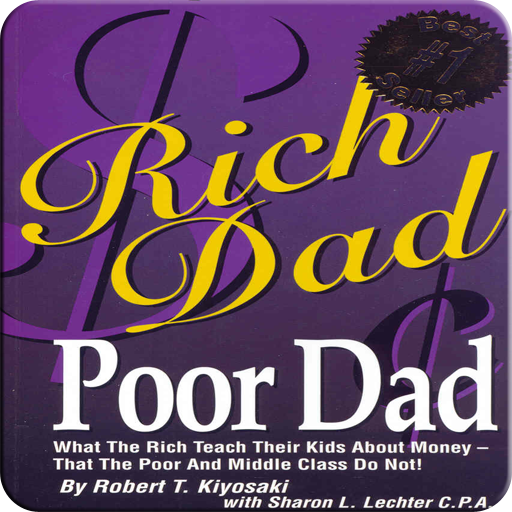“If it’s that simple, how come everyone is not rich?” I asked.
“既然很簡單,那為什么不是每個人都發財呢?”我問。
Rich dad smiled. “Because people do not know the difference between an asset and a liability.”
富爸爸笑了,他說:“因為人們并不明白資產和負債的區別。”
I remember asking, “How could adults be so silly? If it is that simple, if it is that important, why would everyone not wanna find out?”
我記得我又問:“大人怎么會這么笨,如果這個道理很簡單,而且很重要,為什么不把它弄明白呢?”
It took our rich dad only a few minutes to explain what assets and liabilities were.
于是富爸爸又花了幾分鐘向我們解釋什么是資產和負債。

The Income Statement, often called a Profit-and-Loss Statement measures income and expenses: money in or and money out. The second set of boxes is a Balance Sheet. It’s called that because it’s supposed to balance assets against liabilities. That relationship is vital to understand.
收益表,它常被用來衡量收入和支出以及金錢流動方向的情況。下圖中下半部分的表格是資產負債表,它被用來說明資產與負債的情況。理解這種關系很重要。
If you want to be rich, simply spend your life buying assets. If you want to be poor or middle class, spend your life buying liabilities.
如果你想致富,只需不斷買入資產就行了;如果你只想當窮人或是中產階級,只要不斷地買入負債。
In 80 percent of most families, the financial story is a story of working hard and enough to get ahead.
80%的家庭的財務報表表現的是一幅拼命工作、努力爭先的圖景。
Examples such as these are obviously oversimplified. Everyone has living expenses, the need for food, shelter, and clothing. The diagrams rich dad drew show the flow of cash through a poor, middle-class, or wealthy person’s life. It's the cash flow that tells the story. It's the story of how a person handles their money. What they do after they get the money in their hand.
很顯然,所有這些例子都經過了簡化,只表現人們最基本的吃、穿、住、用。富爸爸畫的這些圖表顯示了窮人、中產階級和富人一生的現金流。正是現金流說明了問題,即一個人怎樣處理他的錢,當他有了錢后會怎么做。
I cringe whenever I hear people ask me how to get rich quicker, or how do they start. I often hear, “I'm in debt, so I need to make more money.”
這也是為什么當我聽到人們問我他們怎樣才能快速致富,或是他們應當從哪兒開始時,我感到不快的原因。我也常聽人說:“我欠了債,所以我必須掙錢。”
But more money will often not solve the problem. Money often makes obvious our tragic human flaws. Money often puts the spotlight on what we do not know. That's why, all too often, a person who comes into a sudden windfall of cash—let’s say an inheritance, a pay raise, or lottery winnings—soon returns to the same financial mess, if not worse, than the mess they were in before they recieve the money. Money only accentuates the cash-flow pattern running in your head. If your pattern is to spend everything you get, most likely an increase in cash will just result in an increase in spending. Thus, the saying, “A fool and his money is one big party.”
但有更多的錢往往不能解決問題。錢往往能暴露人性中那些可悲的弱點,并凸顯人們的無知。這就是為什么經常有一些人在忽然得到一大筆意外之財,比如遺產、加薪或買彩票中大獎之后,不久又陷入財務困境的原因——即便他們的財務狀況會比之前好一些。錢只會讓你頭腦中的現金流的模式更加明顯,如果你的模式是把收入都花掉,那么最可能的結果是在增加收入的同時也增加支出。正所謂,“蠢人用蠢錢”。












